When choosing a graphics card for your next build, deciding which brand is the best is sometimes difficult. The two most popular manufacturers have been Asus and EVGA, but with many different models from each company, it can be hard to tell which is worth the money.
If you’re choosing between Asus and EVGA for a graphics card, it’s important to consider the type of graphics card and chipset you need and any brand loyalty you may have. The guide below can assist you in making a decision based on your requirements.
About Asus

ASUS is a leading computer hardware company that manufactures many products, including laptops, motherboards, graphics cards, displays, desktop PCs, servers, wireless networking devices, and mobile phones.
ASUS is known for its innovative and high-quality products and has won numerous awards for its designs. The company is also dedicated to environmental protection and has been recognized by Greenpeace for its efforts.
ASUS products are available in over 100 countries worldwide. The company has its headquarters in Taiwan and has offices in the United States, Germany, the United Kingdom, France, Italy, Spain, China, and Japan. The company offers 24-hour customer support in multiple languages.
ASUS was founded in 1989 by four engineers: M.T. Liao, T.H. Tung, Wayne Hsieh, and Ted Hsu. The company’s name comes from the Greek mythological figure of Pegasus, representing strength and courage.
About EVGA
EVGA Corporation (“EVGA”) is the American Computer Company that deals in hardware production and produces Nvidia-GPU based on video cards and related products. Founded in 1999, EVGA is headquartered in Brea, California.

EVGA’s product range includes laptops, desktops, motherboards, power supplies, graphics cards, virtual reality headsets, and more. EVGA is best known for its graphics cards, especially its GeForce series.
EVGA’s founder and current CEO is Andrew Han. Before founding EVGA, Han worked as an engineer for several companies, including Intel and Nvidia.
In 2006, EVGA was the first to introduce a graphics card with a built-in HDMI port. In 2013, EVGA released the world’s first 4K-capable graphics card.
In 2014, EVGA was acquired by PLX Technology. PLX Technology is a leading provider of connectivity solutions for the computing, communications, and consumer markets.
In 2016, EVGA released the world’s first graphics card with a built-in HDR display port. HDR, or high-dynamic range, is a new display standard that offers significantly increased contrast and color accuracy.
What is the Difference Between Asus And EVGA?
You need to compare and contrast the two brands to understand the difference between Asus and EVGA. Both brands offer a variety of GPUs, each with its unique set of features. However, there are some key differences that you should be aware of before making your purchase.
1. Pixel Rate
The pixel rate is one of the most important factors when choosing a GPU. The pixel rate is the number of pixels the GPU can process in seconds. The higher the pixel rate, the better the performance of the GPU.
Asus has a higher pixel rate than EVGA. This means that Asus GPUs can process more pixels in a single second, which results in better performance. This has a significant impact on gaming, as well as other graphics-intensive tasks.
2. Texture Rate
The texture rate measures how many textured pixels can be rendered to the screen every second. Higher texture rates mean more detailed textures can be displayed, which is especially important for high-resolution textures.
The Asus ROG Strix RTX 2080 Ti OC has a higher texture rate than the EVGA RTX 2080 Ti XC, which can handle higher-resolution textures more effectively.
This makes the Asus ROG Strix RTX 2080 Ti OC better suited for gaming at higher resolutions or for using more demanding textures on the GPU.
3. ROPs
ROPs (render output units) draw the pixels to the screen. The Asus GTX 1080 has more ROPs than the EVGA GTX 1080. When the rendering load is heavy, more ROPs can improve performance.
This makes the Asus GTX 1080 a better choice for gamers who play graphics-intensive games.
4. Memory Speed
The Asus GTX 1080 has a higher memory speed than the EVGA GTX 1080. The Asus has a memory speed of 10 Gbps, while the EVGA has a memory speed of 8 Gbps. This means the Asus GTX 1080 is faster than the EVGA GTX 1080 in the data processing.
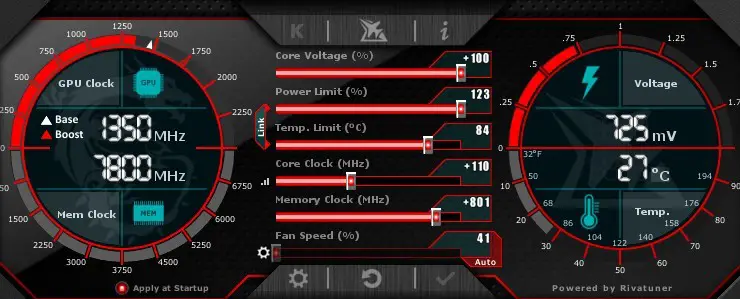
This makes the Asus GTX 1080 a better choice for gamers who want the best performance. You get the advantage of having a faster card, which can mean the difference between winning and losing in some games.
5. Price
The price difference between Asus and EVGA can be significant. This is especially true when it comes to high-end graphics cards. For instance, the Asus GeForce GTX 1080 Ti Strix OC is $100 more expensive than the EVGA GeForce GTX 1080 Ti FTW3 Gaming.
There are factors other than price to consider when choosing between Asus and EVGA. However, if you’re looking for the best value, then EVGA is the way to go.
6. GPU Turbo Speed
The graphics processing unit’s (GPU) speed is an important factor when choosing a graphics card. The GPU speed is measured in gigahertz (GHz), and the higher the number, the faster the GPU.
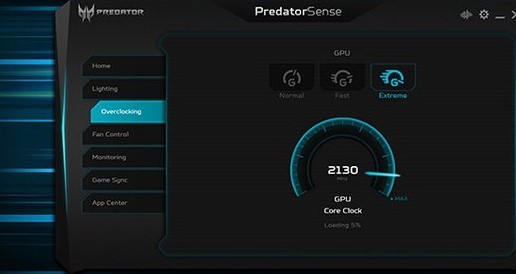
Asus and EVGA both offer high-speed GPUs. The Asus ROG Strix GeForce RTX 2080 Ti OC Edition has a base speed of 1,350 MHz and a boost speed of 1,545 MHz. The EVGA GeForce RTX 2080 Ti XC Ultra has a base speed of 1,350 MHz and a boost speed of 1,545 MHz.
7. Overclocking
Overclocking is running a component at a higher than factory-specified speed. Graphics cards are often overclocked to extract more performance from them.
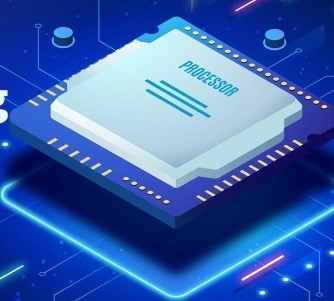
Asus and EVGA both offer excellent overclocking support. However, Asus has the edge when it comes to overclocking potential.
8. Cooling System
The cooling system is an important factor to consider when purchasing a graphics card. Asus and EVGA both have great cooling systems. Asus’s DirectCU II cooling system features two 10mm copper heat pipes and a large aluminum heatsink.
The ACX cooling system from EVGA has a larger aluminum heatsink and three copper heat pipes.
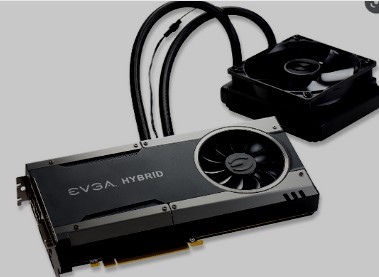
9. Number Of HDMI Ports
HDMI ports are essential to connect your computer to an HDTV. Most graphics cards have at least one HDMI port, but some have two or more. The Asus GTX 960 has two HDMI ports, while the EVGA GTX 960 has just one.
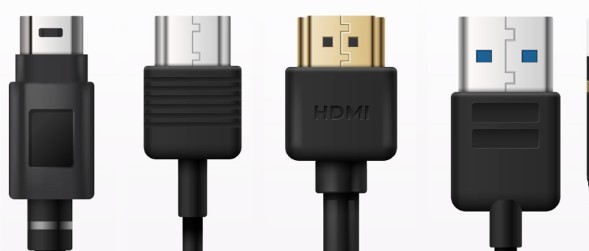
10. Noise Level
The noise levels of Asus and EVGA cards are comparable. However, the fan on the Asus card is a bit louder than the EVGA card fan. This is since the Asus card has a higher maximum fan speed.

12. Support And Warranty
Asus and EVGA both offer excellent support for their products. They have extensive online knowledge bases and FAQ sections to help you troubleshoot problems. Both companies also offer phone and email support.
Asus offers a two-year warranty on their cards, while EVGA provides a three-year warranty. Both companies offer extended warranties for an additional cost.
Is Asus Or EVGA Better?
This question has no simple answer, as it depends on various factors. However, in general, Asus offers better-quality products than EVGA. Asus also has a better reputation for customer service and support.
If you’re looking for the best overall experience, Asus is the better choice. However, EVGA is worth considering if you’re looking for the best value. Ultimately, the decision comes down to your personal preferences and needs.
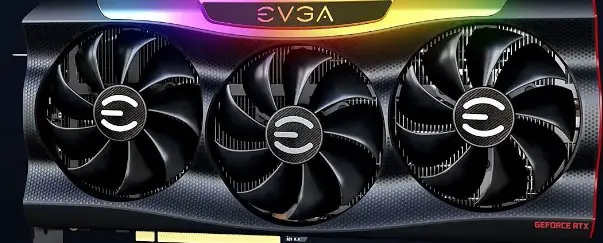
What Is Asus GPU Warranty?
Asus offers a limited warranty for its GPUs that covers defects in materials and quality for one year from purchase. This warranty does not cover damages caused by accident, abuse, misuse, or modification of the GPU. If you experience problems with your Asus GPU during the warranty period, you should contact customer service to begin filing a claim.
After the hardware has been diagnosed as defective, you can receive a replacement or a refund for the purchase price of the GPU.
Asus also offers a limited warranty for its software, which covers defects in materials and quality for 36 months from the date of purchase.
This warranty does not cover damages caused by accident, abuse, misuse, or software modification. If you experience problems with your Asus GPU software during the warranty period, you should contact customer service to begin filing a claim.
After the software has been diagnosed as defective, you will have the option to receive a replacement or a refund for the purchase price of the software.
Frequently Asked Questions
Are EVGA Graphics Cards Any Good?
Some say EVGA graphics cards are among the best in quality and performance. However, there is no clear consensus on this matter, which ultimately comes down to personal opinion. EVGA cards generally tend to be on the higher end of the price spectrum but offer excellent value.
An EVGA card may be a good option if you are looking for a high-end graphics card. However, other brands may be more suitable if you are on a budget. Ultimately, it is up to you to decide which graphics card is best for your needs.
Is EVGA Available In India?
EVGA is not currently available in India. This may change, so it’s best to check periodically to see if the situation has changed. In the meantime, plenty of other great brands of graphics cards are available in India.
Is EVGA Compatible With Asus?
Yes, EVGA is compatible with Asus. You can find a list of compatible products on the EVGA website. You can also contact EVGA customer support for more information.
Is The EVGA Good For Gaming?
This will always depend on the games you’re playing and the performance you’re looking for. In general, though, the EVGA is an excellent choice for gaming. It’s got a fast processor and plenty of RAM to handle most games without any issues.
The graphics card is powerful enough to give you great visuals and frame rates. The EVGA is an excellent option if you’re looking for a gaming laptop that can handle just about anything.
What Is EVGA GPU Warranty?
EVGA GPU Warranty is a service that protects your investment in your EVGA graphics card. If something goes wrong with your card, you can send it back to EVGA, and they will either repair it or replace it for you. The service is available for new and used cars and even covers accidental damage.
So, if you are worried about your EVGA graphics card breaking down or have had a problem, check out EVGA GPU Warranty. It could save you money and hassle you in the long run.
Is EVGA Warranty Transferable?
Yes, EVGA warranties are transferable. If you sell your product, the new owner will be able to register the product and receive the same warranty coverage that you had. If you have any questions, please contact EVGA customer support.
Is Asus GPU Warranty Transferable?
Yes, you can transfer your Asus GPU warranty to another person. You must contact Asus customer support and provide them with the new owner’s information. They will then be able to process the transfer and issue a new warranty in the new owner’s name.
Conclusion
If you’re looking for the best possible gaming experience, you’ll want to choose the EVGA card. It offers more features and better performance than the Asus card. However, the Asus card is a good option if you’re on a budget.
You should also remember that the EVGA card is more expensive than the Asus card. When it comes to choosing between the two, it depends on your needs and preferences. You’ll surely have a fantastic gaming experience, whichever card you choose.





